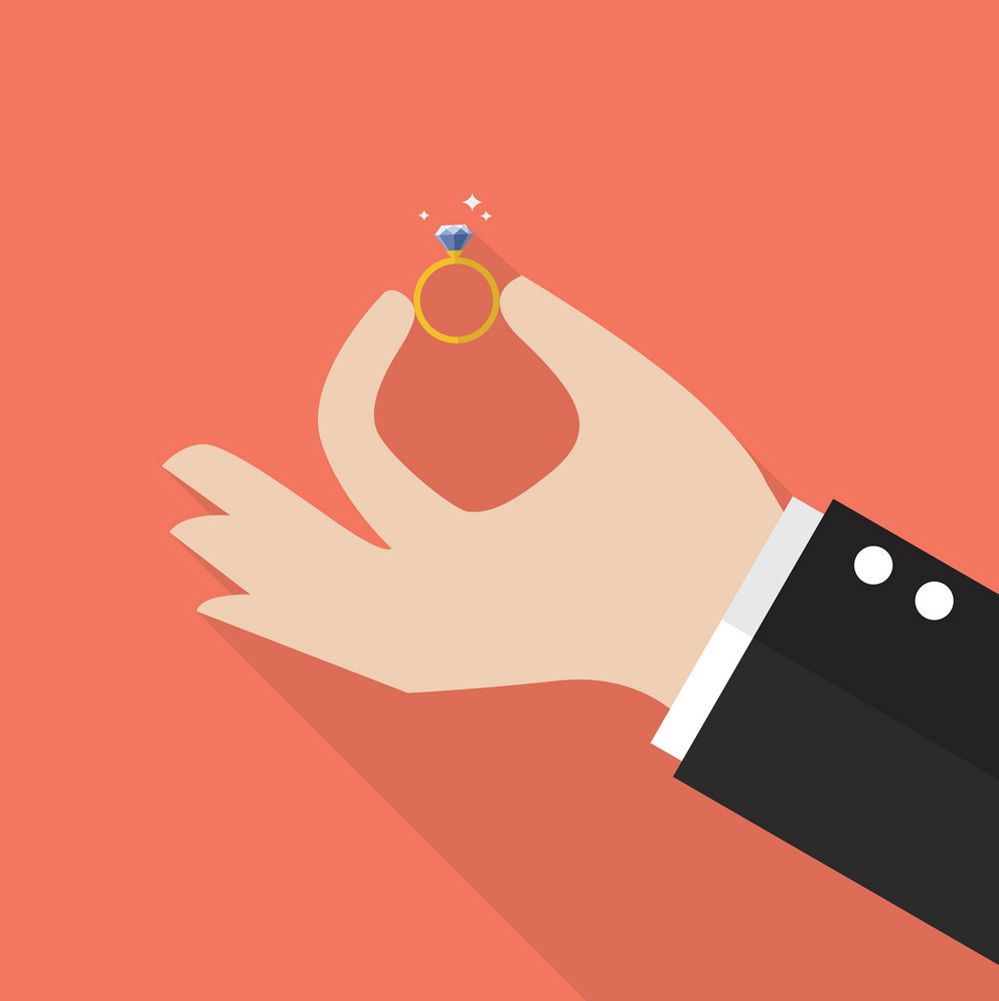12 TIPS FOR GETTING AN DIAMOND WITH THE MOST SPARKLE
Your Diamond-Buying Cheat Sheet
Let’s face it. Buying a diamond for an engagement ring or for any milestone jewelry is a big deal. It’s not only a major purchase, it’s also a major decision because you’re trying to get it right—the style, the carat weight, the sparkle! Most customers take about three months to find the perfect ring. While we can’t necessarily make the process faster, we can make it easier. Here’s a breakout of the tips our diamond experts share with their friends—and now, with you.
Forget that old-school tip about spending three months of your salary. We have beautiful diamonds options for every budget and style.
-
Our diamond experts don’t work on commission.
-
The Diamsty philosophy is to help you to make the most of your budget.
-
We lovingly handcraft every ring that we make—regardless of the price tag.
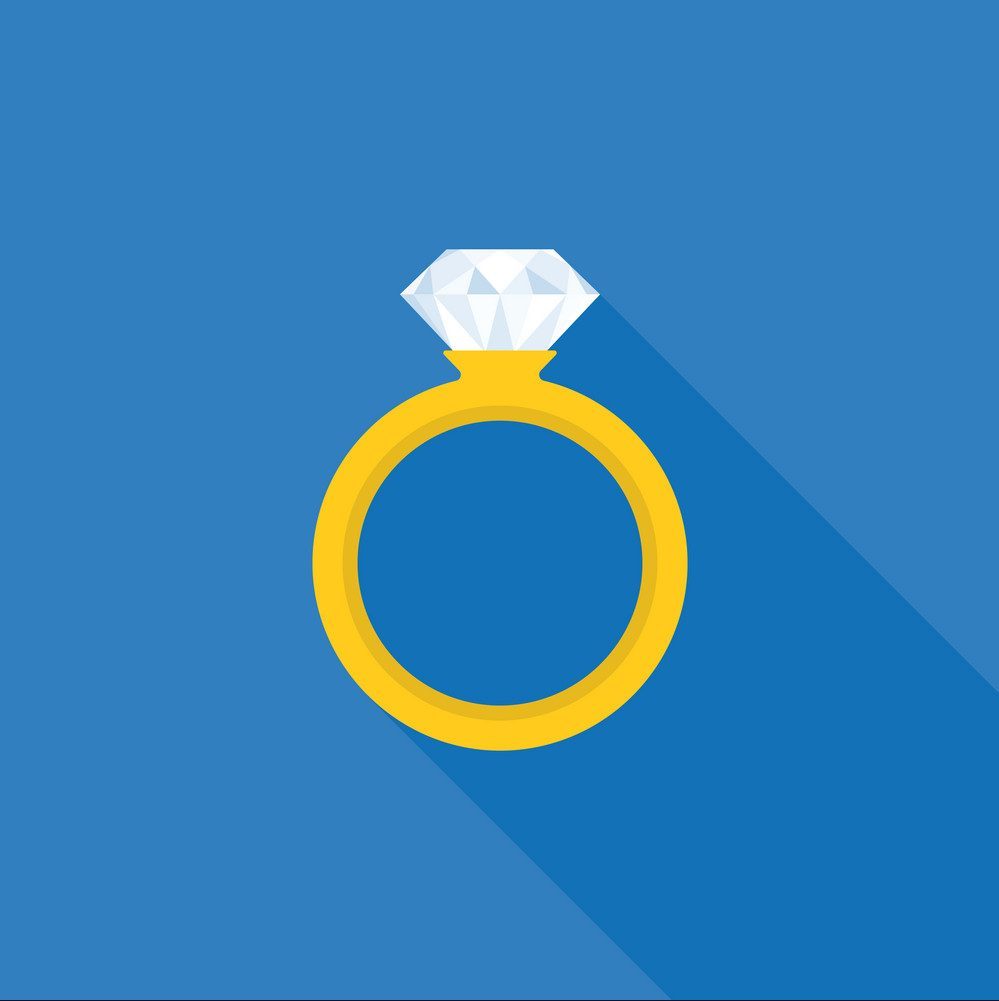

TIP 2
Master the 4Cs: cut, clarity, color and carat.
Understanding the 4Cs is key to getting the most sparkle for your budget. And if you feel overwhelmed, you can always chat, call or email our diamond and jewelry experts. They’re pros at separating fact from fiction and walking you through every consideration.
TIP 3
Think with your eyes.
Decide where to spend your money, and where to save, by prioritizing what you see first.
-
A well-cut diamond reflects maximum light—sparkle you can see across a room.
-
To appreciate color you need to get closer, roughly three to six feet away.
-
The highest clarity grades are only noticeable from a distance of six to eight inches.


TIP 4
Prioritize cut.
Cut is the most important of the 4Cs: The better the cut, the more your diamond will sparkle.
-
We offer three cut grades: Excellent, Very Good, Good.
-
67% of our customers choose an ideal cut for maximum sparkle.
-
A poor cut (too shallow or too deep) can make a flawless diamond appear dull.
TIP 5
Put clarity in perspective.
Most diamonds have tiny flaws that can only be seen with 10x magnification. For instance, SI grades aren’t flawless, but still look great to the naked eye.
-
Diamonds can have internal flaws and/or external flaws.
-
The clarity grading scale runs from SI2-SI1 (slightly included) to FL (flawless).
-
A good place to start your search and maximize your budget is with SI2 and SI1 grades.
-
Weight affects clarity — if your diamond is under two carats, go with VS2.
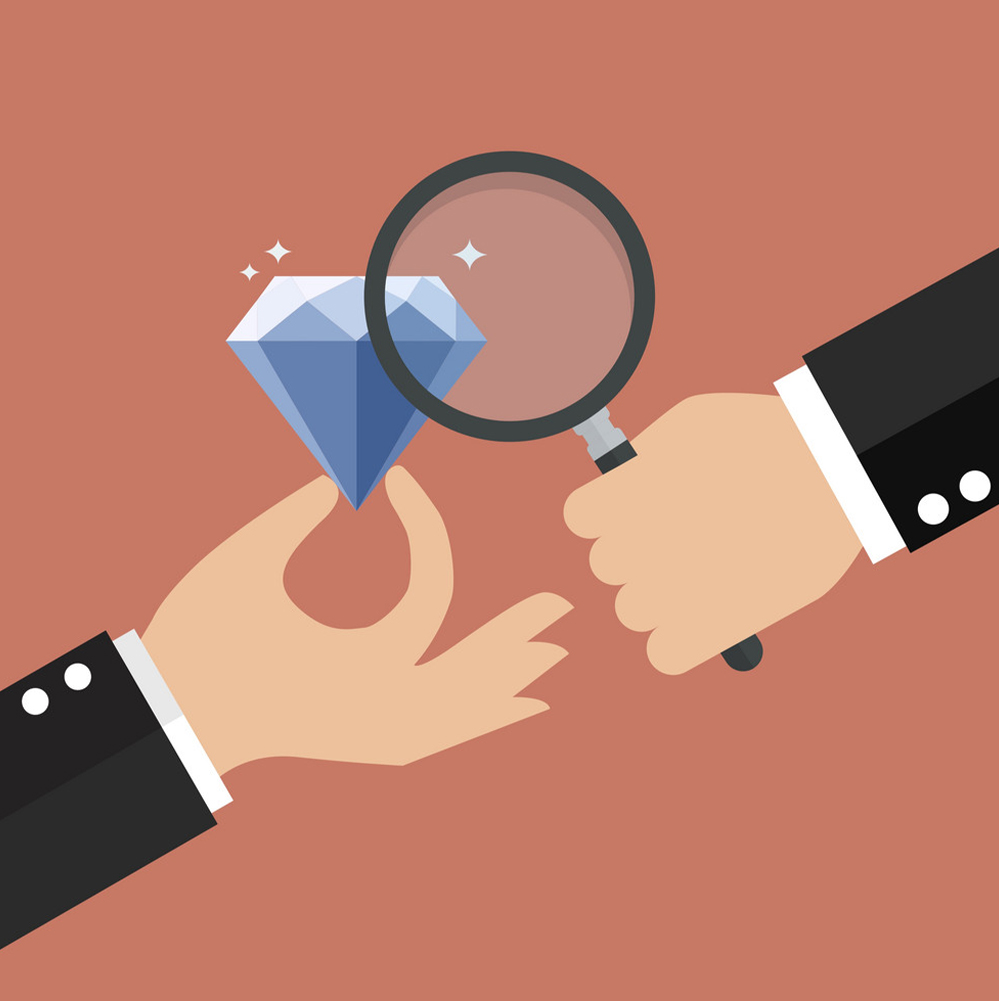
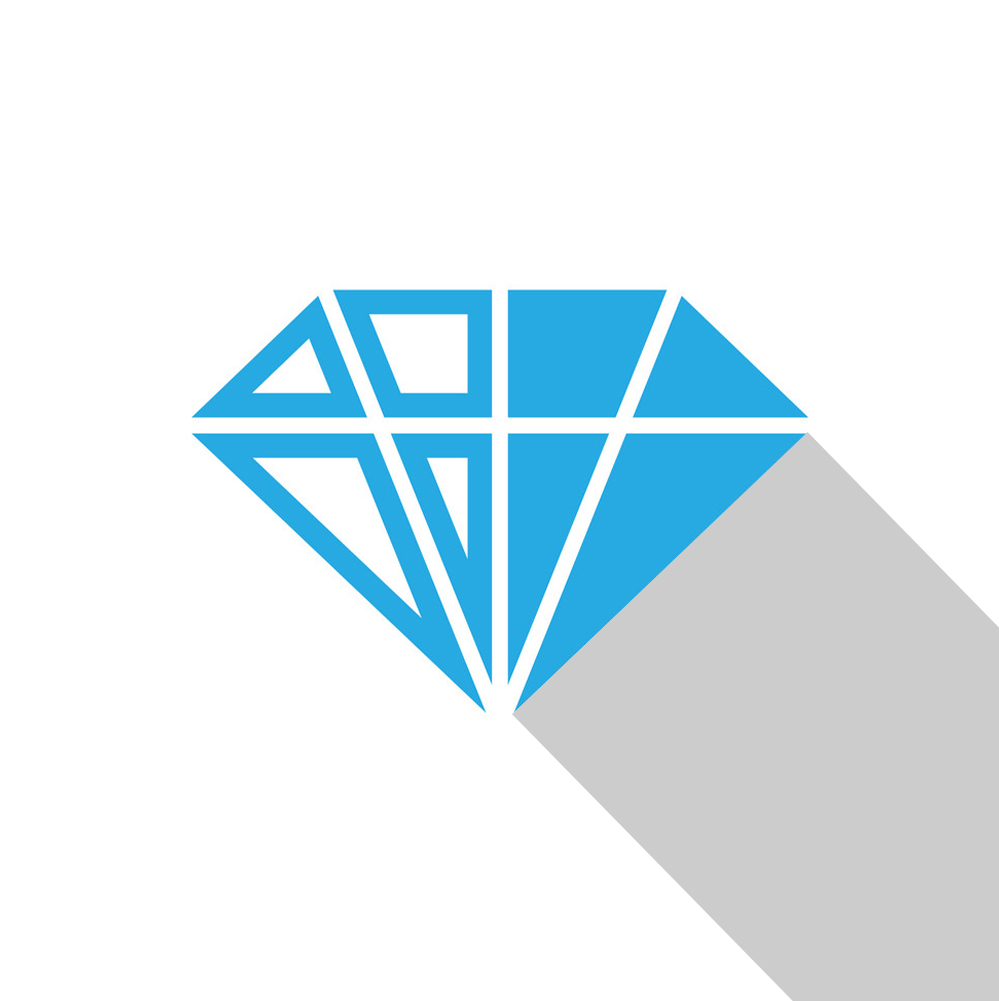
TIP 6
Consider near-colorless diamonds instead of absolutely colorless.
It’s the absence of color that’s actually the most rare and therefore the most expensive.
-
Diamonds at Diamsty are graded from K (faint color) to D (colorless).
-
For a great value and quality, start your search with a G or H grade (near colorless).
-
Different precious metals will affect the way your diamond’s color is perceived. Choose settings with this in mind.
TIP 7
Weigh the pros and cons of larger carat weights.
While you may be envisioning a specific carat weight, bigger is not always the way to go. Is it important that the stone you buy is a precise carat weight—or would you be happy with a diamond that “reads” like that weight?
-
Carat is about weight, not size.
-
Prices increase exponentially as carat weight goes up.
-
A good place to start your search is with VS2 (very slightly included).
-
Carat weight is relative to finger size, setting size and diamond shape. Sometimes, smaller carat weights are the right choice.
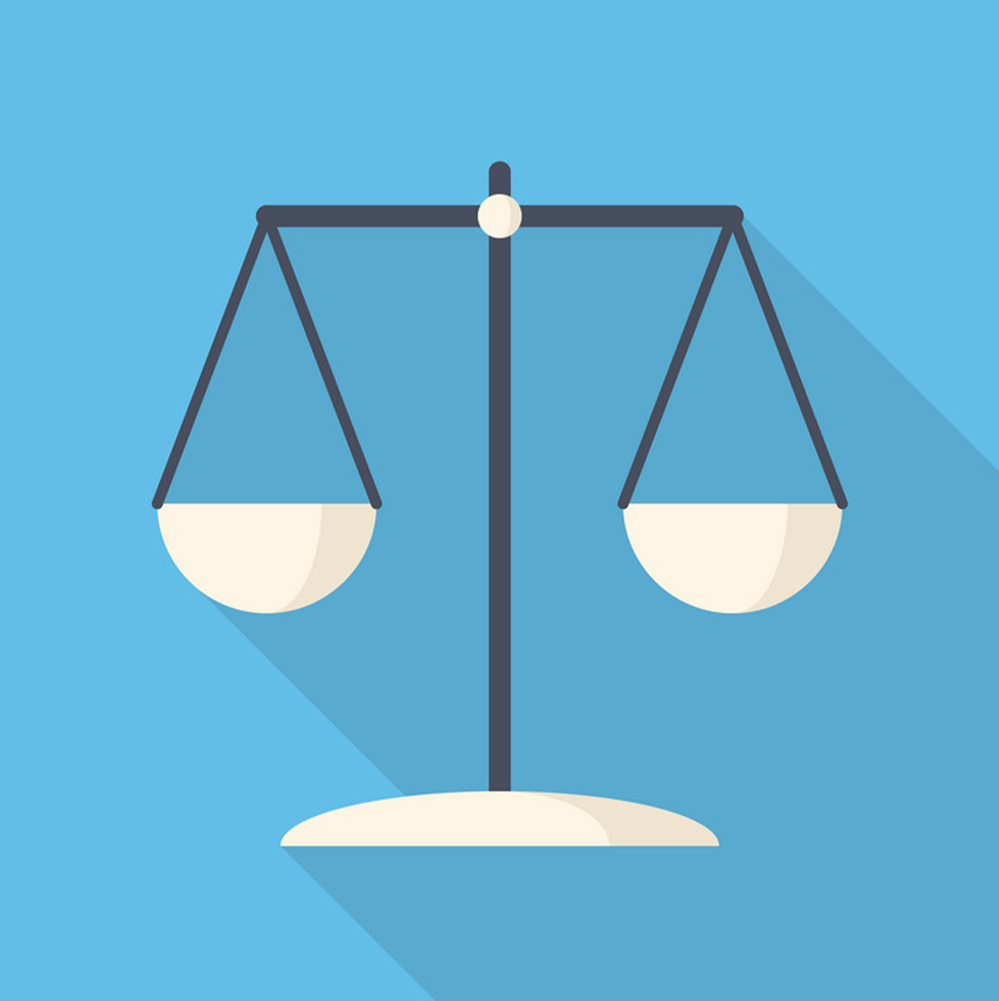

TIP 8
Check out fancy-shaped diamonds.
Round brilliant diamonds are our most popular, but don’t rule out other shapes. All non-round diamonds are called “fancies.” Fancies can look larger and cost less than a round of similar carat weight.
-
There are 9 fancy shapes: princess, emerald, asscher, cushion, marquise, radiant, oval, pear and heart.
-
Why are rounds more expensive? It’s complicated, but in essence it comes down to the established cutting standards. Round diamonds are the only shape with GIA-designated cut parameters. There are exacting standards for fancies, too, but these were determined by our own master craftspeople rather than the GIA.
TIP 9
Buy shy to save big.
Diamond prices jump significantly at the carat and half-carat marks. Purchasing just shy of those weights is a great way to stretch your dollars.
-
The visual difference between a .9 and 1.0 carat is slight.
-
Diamsty offers a wide selection of diamonds at non-traditional breakpoints—far more than you’d be able to find at a small, independent jeweler.

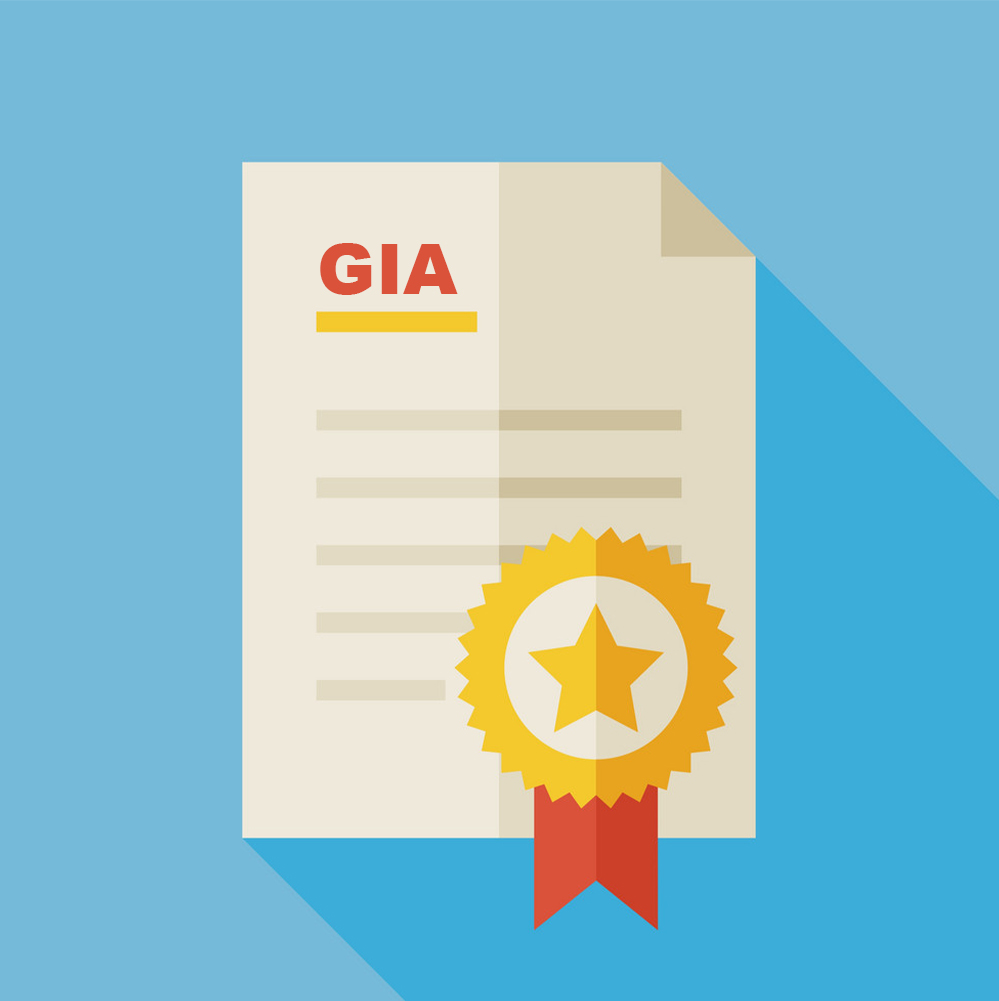
TIP 10
Look at the paperwork.
Gearing up for a proposal is a big deal, and you want the ring to be just right. The last thing you need to sweat over is the fine print. No worries—we’ve got you covered.
-
The finest quality natural diamonds are always independently certified.
-
Make sure your diamond comes with a grading report from the GIA (Gemological Institute of America).
TIP 11
Keep your stress level low with the right guarantees.
This is a major purchase, so of course you want to know that what you’re buying is authentic, natural and conflict-free. We’ve always sold high-quality, conflict-free diamonds and we wouldn’t have it any other way.
-
Ask about our price-match guarantee.
-
We pride ourselves on our low prices and high value, but if you find a comparable GIA-graded diamond at a lower price than ours, we’ll match it.
